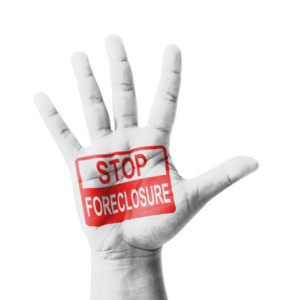Deed in Lieu of Foreclosure

A deed in lieu of foreclosure is given by a borrower to a mortgage lender to prevent foreclosure. The lender benefits by avoiding the cost and time required to conduct a foreclosure. The borrower benefits by avoiding the embarrassment of foreclosure and by avoiding further damage to his or her credit score.
Discharge of Debt
However, many factors must be considered when deciding whether to give or accept a deed in lieu. One of the biggest considerations is the amount of debt to discharge. Some states by law discharge the entire debt when a lender takes title to property pursuant to a deed in lieu. Other states discharge the debt to the extent of the fair market value of the property. Missouri law discharges none of the debt when property is conveyed to a lender pursuant to a deed in lieu. Instead, the parties must negotiate the discharged amount.
The main things to consider when determining the amount to discharge is the fair market value of the property, the amount of the debt owed, and the liens currently encumbering the property. (Unlike a foreclosure, a deed in lieu of foreclosure extinguishes no liens on the property, including the deed of trust granted by the borrowers to the lender.) A lender might also consider conducting a phase I environmental assessment, especially if the lender is taking title to commercial property.
Tax Considerations
While borrowers want to maximize the amount of the debt that will be discharged pursuant to a deed in lieu, borrowers should be aware that the lender is required to report to the IRS the amount of the loan that was discharged by the lender and the fair market value of the property. The borrower may be liable for taxes on the portion of the discharged debt that exceeds the fair market value of the property. For example, if the amount of the debt discharged is $100,000.00 and the fair market value of the property is $80,000.00, the borrower may be obligated to pay tax on the $20,000.00 difference.
A borrower will not be liable for such tax if the loan was nonrecourse, as a borrower is not personally liable for the payment of a nonrecourse loan. A borrower is generally likewise not liable for such tax if the debt is discharged in bankruptcy, if the borrower was insolvent when the debt was discharged, or if the debt was real property business debt.
Risks to Lenders
Finally, lenders should be aware that a bankruptcy trustee can set aside a deed in lieu that is granted within 90 days prior to the borrower filing a bankruptcy petition and up to one year prior to the filing in cases of fraud. Excessive equity in property acquired pursuant to a deed in lieu may be deemed a constructive fraud, allowing the trustee to set aside a deed in lieu within such one-year period. A borrower can also seek to set aside a deed in lieu by claiming duress, coercion, or lack of consideration. Lenders can lessen such risks by assessing the solvency of the borrower and by an obtaining an accurate measure of the fair market value of the property and using that measure to determine the amount of the loan to discharge.
This article is for general informational purposes only, and it is not intended as legal advice. Sewell Law provides professional legal services in the areas of real estate and business law, including litigation. Please contact Michael Sewell, MBA, JD at (314) 942-3232 or at michael@sewelllaw.net to discuss your real estate or business matters.
The choice of a lawyer is an important decision and should not be based solely upon advertisements.
© 2017 Sewell Law, LC


